How GOSH is bringing hope to children with life-limiting illnesses
Karen Attwood reports on the remarkable palliative care and support offered by Great Ormond Street's Louis Dundas Centre – and goes on the road with Dr Finella Craig to meet the parents of three patients, past and present
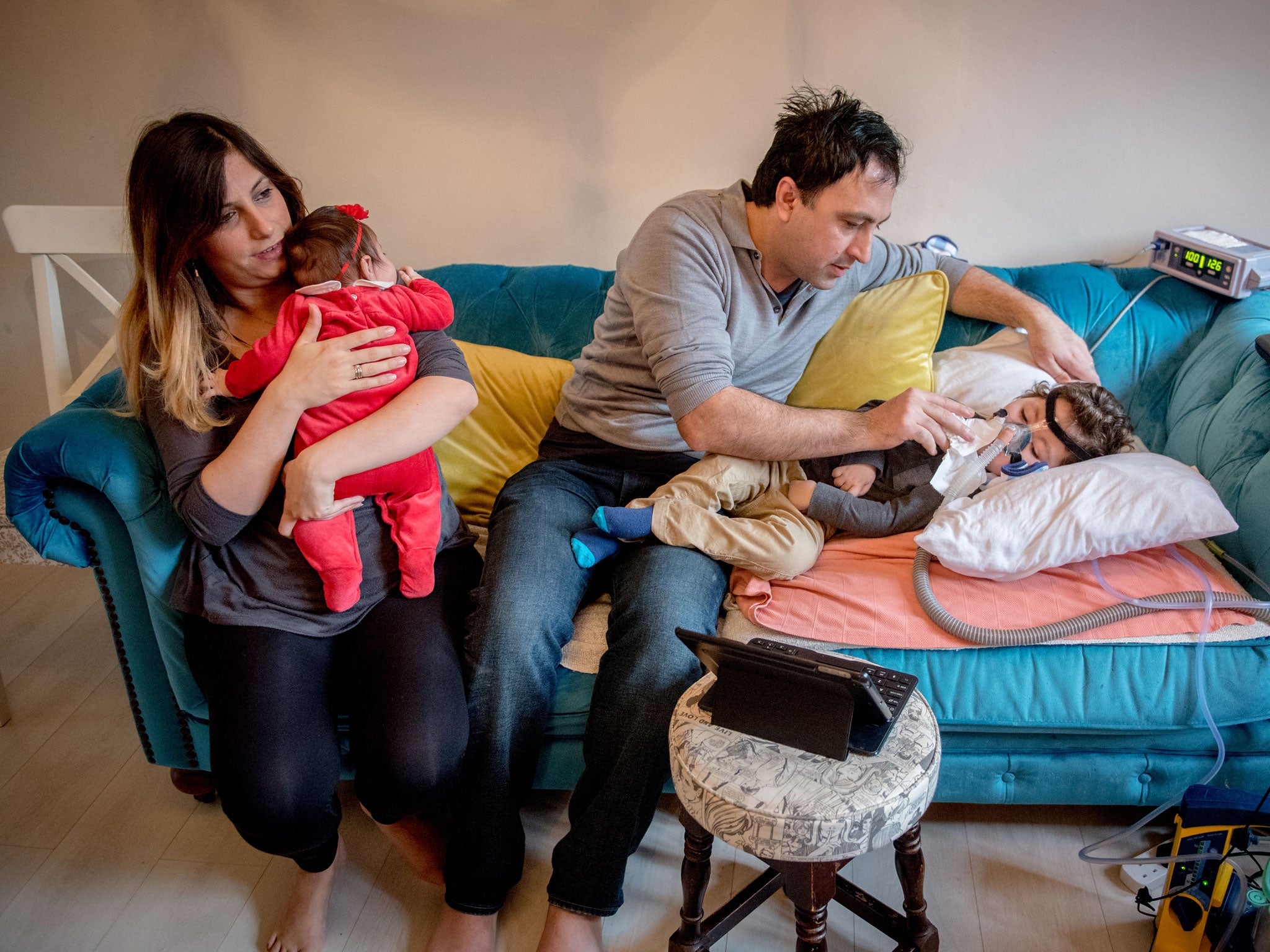
'When people are living through really difficult situations, all the worldly stuff gets stripped away, and you can see their real personalities," says Dr Finella Craig, a consultant in paediatric palliative medicine. "You see how resilient people can be; how they can cope with situations that you imagine would be impossible; how they can still find happiness and smile."
I am accompanying Dr Craig on home visits to three families she is supporting in her role at the Louis Dundas Centre (LDC) for Children's Palliative Care at Great Ormond Street Hospital (GOSH). Last year, the LDC made more than 2,500 visits to young patients with life-limiting and life-threatening illnesses, and took on 374 new referrals. The extraordinary care, support and research undertaken by the LDC are, for the outsider, distressing to contemplate, perhaps. But GOSH is determined to highlight both the centre's importance to its patients and their families, and, crucially, the acute need for such care across the country.
The LDC itself was founded in 2009 by Ruth Kennedy, after she had had to watch her beloved four-year-old son Louis die slowly in "unspeakable pain" after he developed a brain tumour. She was determined to raise money to fund a centre of excellence in research, training and support in palliative care for children because "we should look after people in these terrible circumstances as best we can".
On the road with Dr Craig, I want to know what motivates her to do such a difficult job. "You see wonderful people dealing with horrible situations and you can help make it a little better," she says. Dr Craig is being modest. Her support has a huge impact on the families she works with. And she is able to give such dedicated care to children and their parents – who are having to cope with the knowledge that their child will probably die before them – because of the ground-breaking research carried out by the LDC.
Although the LDC has a centre at GOSH, where its 35 staff have offices, the care takes place not only there, but also at hospices, other hospitals and in the children's own homes, where staff support and train families to manage symptoms and pain. They also prepare families for how their child's condition is likely to develop, and give them as much information as possible to help them make the difficult decisions that follow.
It is early days for paediatric palliative care – as Professor Myra Bluebond-Langner, head of the LDC's research team, says, "This research has only begun to establish itself in the past 15 years" – and the LDC wants to find better ways to ease pain and reduce distressing symptoms. Already, progress has been made, and Dr Craig explains that pain relief is a careful balancing act. "You can't give a child so much medication that they can't breathe, but you need to give enough so they are comfortable," she says. "We aim for good symptom management, while retaining hope that if there is potential that the child has it in them to recover, you haven't compromised that."
But palliative care is not just about pain management. It encompasses the emotional, social and spiritual aspects of wellbeing. It's about enhancing quality of life for the child as well as offering support for the family, including for bereavement. As Julia Samuel, founder patron of Child Bereavement UK, says, when a child dies, "It tears up the rule book of life: no one ever expects to bury their child. [It] shatters your trust in life," which makes the grieving process so much more intense. It is the quality of support that families receive that plays a part in how they will learn to live with their loss, she adds.
This is why Dr Craig visits parents throughout their children's lives, deaths, and beyond. "Sometimes you help make things better by doing something clever with medication," she says. "Sometimes it's by being there and listening." In return, she gets to witness "the intensity" of the love these parents bear for their children.
Sonay Mustafa
Sonay Mustafa’s daughter, Kader, died in GOSH in January 2014 at the age of six. During a difficult birth, Kader’s brain did not get enough oxygen, leading to neuromuscular dysfunction affecting muscle tone, skeletal development and respiratory function. Kader was first referred to GOSH in May 2009 when she was 21 months old. Just before Kader turned five in 2012, her breathing became more difficult and she was referred to the LDC palliative care team. For two years, the team helped manage Kader’s pain and symptoms, as Sonay cared for Kader at home
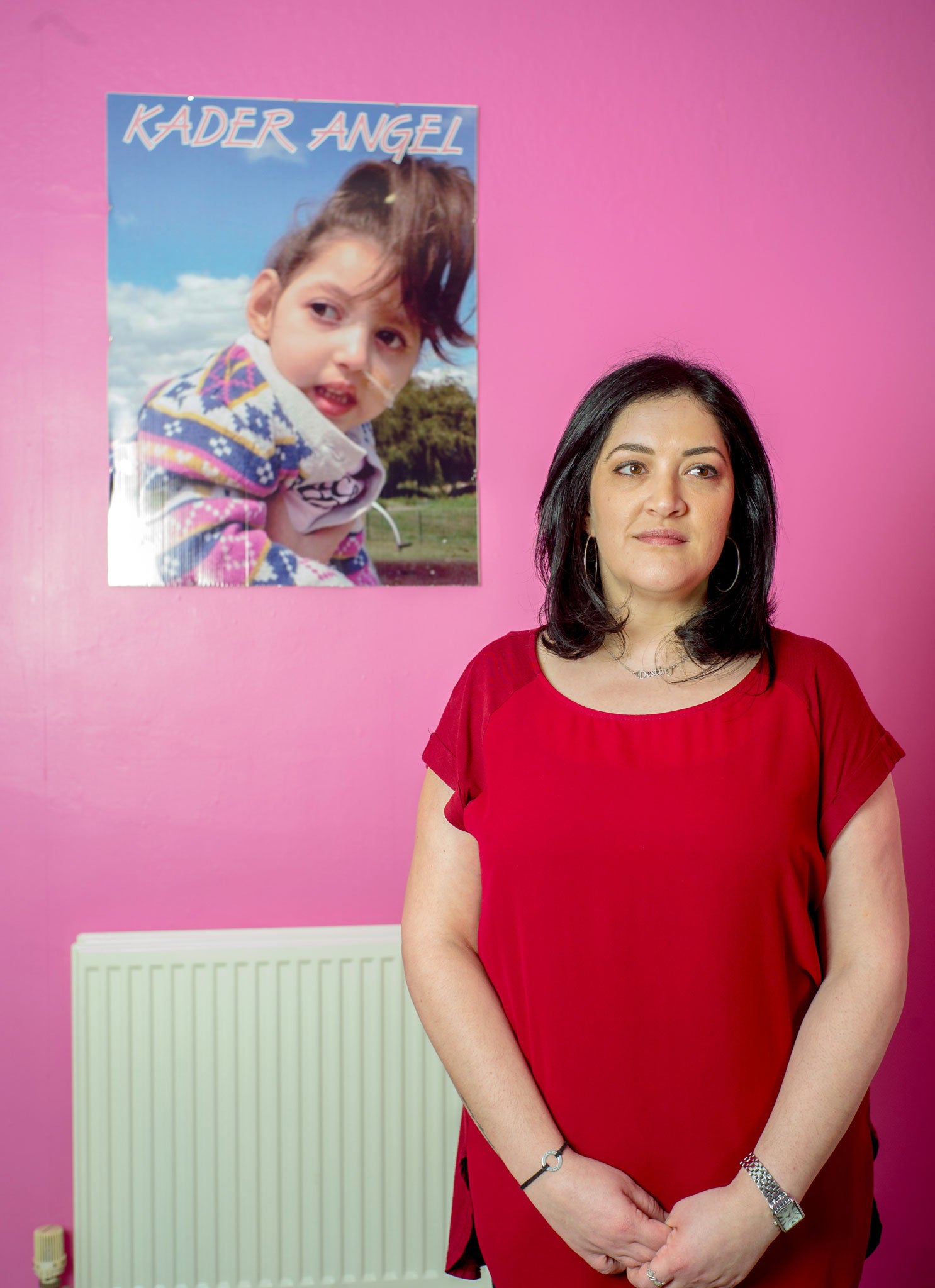
'Kader would smile through anything, even on the days she was struggling. You just had to touch her hand and she would give you this huge smile and suddenly your day would be fine.
"Dr Craig got involved with Kader's care when she was nearly five. Kader was very ill by then. Her breathing had become a real problem. From so many paediatricians, I heard, 'She is not going to live long, there is nothing we can do, we don't want to give her too many drugs.' Then Dr Craig and the palliative care team came. I couldn't believe the difference. I always say if it wasn't for the palliative care team, Kader would have died struggling and in pain. Kader was even comfortable enough to be a bridesmaid at my niece's wedding thanks to Dr Craig. My family all say how happy we are that she made it.
"It was overwhelming the number of people who came to Kader's funeral. I remember thinking, 'Kader, look at all these people who are here for you.'
"I was with Kader 24 hours a day, seven days a week – so, separate to the pain of losing her, is the shock that she isn't there any more. My routine was: get up, get her ready, wash her face, brush her teeth, give her this med at this time – and suddenly I don't have to do any of this. I didn't know how to be without her.
"I'm now volunteering with Age UK Enfield as a befriender [helping combat the loneliness of others in later life]; Dr Craig was my reference. I also moved last October, but I have made Kader a big part of the new house. The room that was meant to be her room I have painted pink, and there is a big picture of her on the wall. I even have a cushion with her face on it that my sister got me, which I sleep with every night.
"I am so grateful that I had her. I loved spending time with her. She changed me for the better, that is for sure."
Patricia Lynch
Patricia Lynch’s daughter, Catherine, was diagnosed with a brain tumour in September 2005 at UCH, London, and had radiotherapy; she also saw doctors at GOSH but no further treatment was possible. Catherine went home to be cared for by her mother and a small palliative care team at GOSH that predated the LDC’s establishment. Eight months after diagnosis, Catherine died, aged 12. Patricia was, and still is, supported by Dr Finella Craig
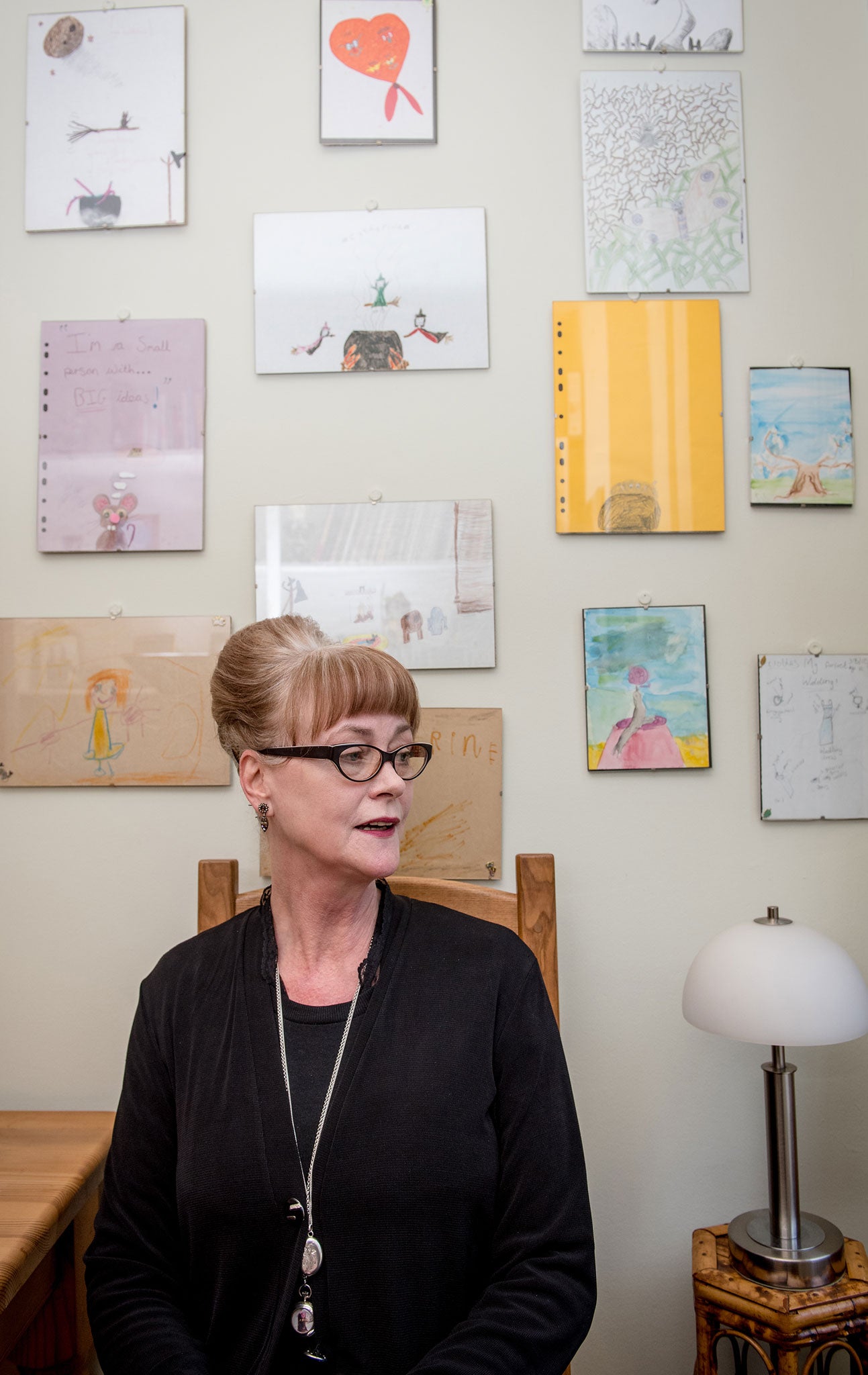
'Catherine was my whole world. She was a fertility baby. I had four miscarriages and miscarried Catherine's twin, and then my Catherine came along. We went everywhere together.
"Catherine described herself as 'bubbly, funny, caring, with hair that never stayed in place'. She loved drama and she loved animals. She was learning Mandarin and French and they said she was Oxbridge material, which blew us all away. Can you imagine having so much love and having it ripped away? It is hard to live without your daughter.
"I noticed that Catherine was getting extremely pale and losing weight – the doctors thought it was because she was being bullied. Later, they thought she had ME, but then she got really sick and they kept her in for a scan. I knew from then. They said, 'I'm very sorry but your daughter has a brain stem tumour and there is no cure for it; your daughter is going to die.'
"I know that [Catherine] knew [that her diagnosis was terminal] because the doctors would say, 'Do you want to talk about anything?' and she would say, 'No thank you, if I need to know anything my mummy would tell me.' Catherine had radiotherapy and they said, 'Take her home. There's nothing more we can do for her.' I watched her body close down slowly. She ended up in a wheelchair; her left side went. I, as a mother, had to watch this.
"It's very hard when you have strangers coming in and your first reaction is, 'I don't want you in here, as that means my baby is dying.' But I needed them. I wasn't eating – one nurse would come up with a hot chocolate and a cake every morning, and I could manage to eat this sweet thing.
"Fin [Craig] was amazing – she saw my daughter, not the illness. Catherine was depressed and just lying in bed, looking at the wall. Fin talked with her and then Catherine turned to me and said, 'Mummy, get my books, I want to show Fin.' My daughter was back.
"Fin helped get her poems and stories turned into a book. She also encouraged Catherine to write to JK Rowling, and when Catherine got a reply, she just held that letter; it was her treasure. These little gems were being added to Catherine's life.
"Fin and I meet for hot chocolate each Christmas. I don't get to talk about Catherine, but with Fin I can. She understands how much I miss Catherine, her smell, her laugh, and I can't tell you how much that opens my heart."
Serdar Agirman
Serdar Agirman (interviewed) and his wife, Pelin, are the parents of two-year-old Ruzgar, who was diagnosed with spinal muscular atrophy at GOSH in December 2014. They also have a baby daughter named Karia. Ruzgar attends GOSH for tests and assessments. Since the day Ruzgar was diagnosed, the palliative care team from the Louis Dundas Centre has been supporting the family to care for him at home as much as possible
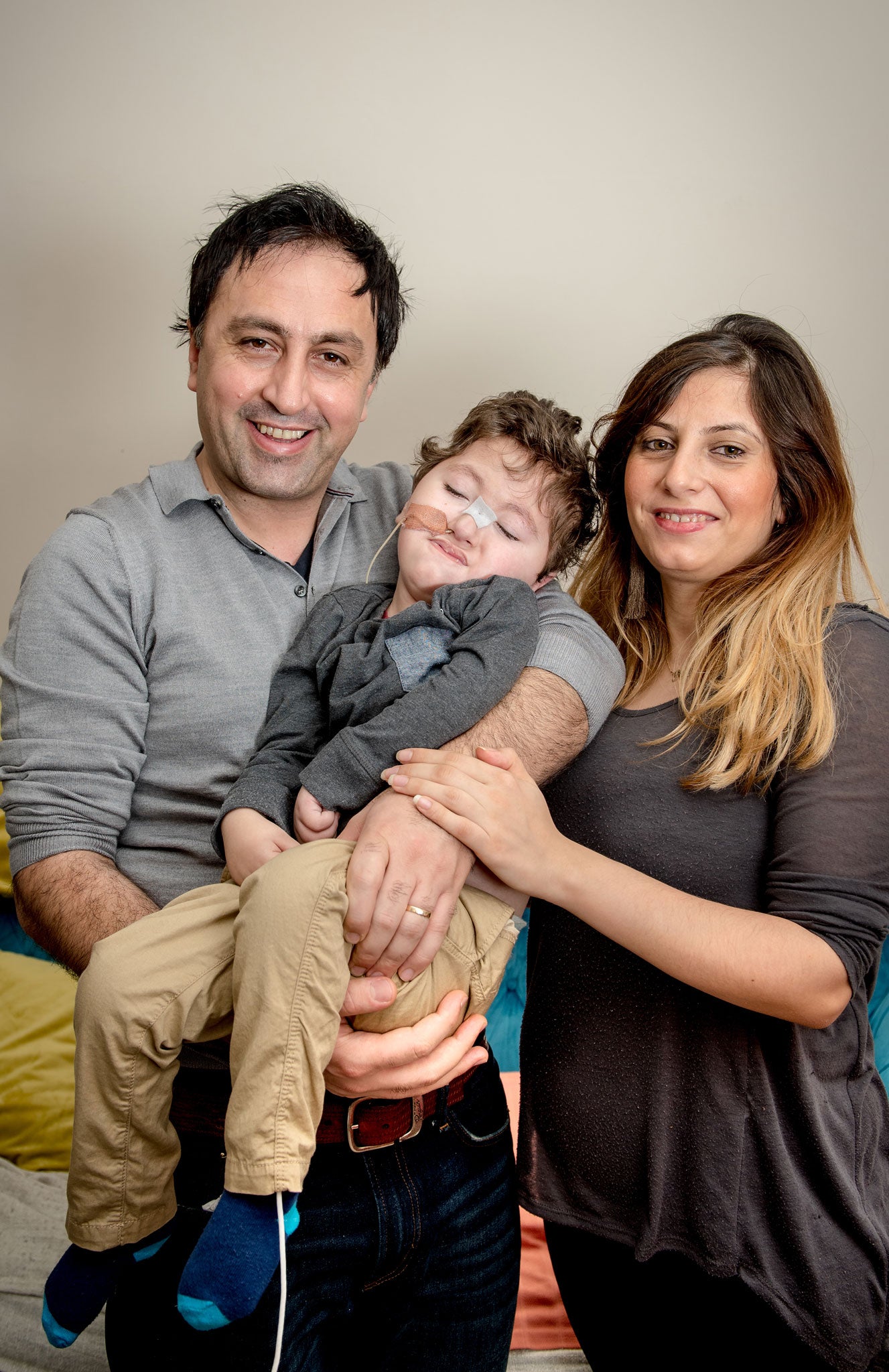
'We found out Ruzgar was very sick when he was five months old. It was a big shock. We had never heard of this illness before. We didn't think he would survive this long – we were told it would be three years, maximum.
"I used to be a manager in a pub, but I wanted to have the night-times off to spend with my baby. So, just before Ruzgar was born, I opened my own business and put all my money into a café. About four months later, we found out about Ruzgar, and our whole life was torn apart. We had to spend one month in the hospital and I couldn't look after the business, so I lost it. We lost our house. Everything in our life was bad at that time.
"Before, we were in our local hospital every week or twice a week, but thanks to the support of the LDC, we can now do most things at home. If Ruzgar gets ill, we can usually treat him ourselves with antibiotics. It's so much better than dragging him [to the hospital]. Dr Craig is the main contact if I have any worries. She is on our side and she knows Ruzgar. I can text her on a Sunday and she will call me straight back. Without this help, I don't know how we would have done this.
"My main worry is that we know there is no cure and that his illness is progressing. If he gets worse, then what will we do? Living with this knowledge that your child is not going to survive, it's really scary. Physically and emotionally, it has been so hard.
"We didn't plan our baby daughter and we were really upset [when she was conceived]. Looking after Ruzgar is not easy and we didn't think we could manage anything else. But the doctors encouraged us. At first, we didn't want to give the time we spend with Ruzgar to anyone else, as he is so special and needs help. But already the joy Karia has given us is incredible. I also recently started a new job and we have returned to a normal life.
"My main hope is to have quality time together. We also hope that there can be a cure. Having your son dying in front of you makes everything a battle, but with good support, we have learnt how to live with this."
To Give to GOSH go to: http://ind.pn/1Mydxqt
To find out more about our appeal and why we're supporting GOSH go to: http://ind.pn/1MycZkr

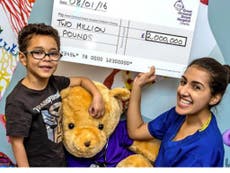
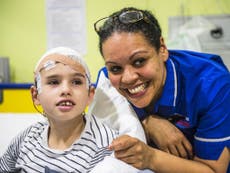
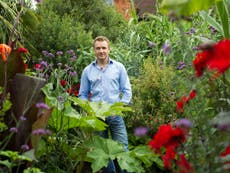
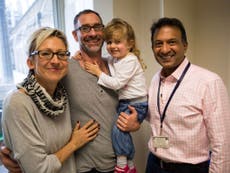
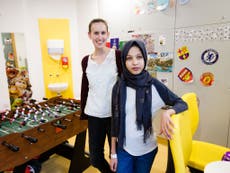
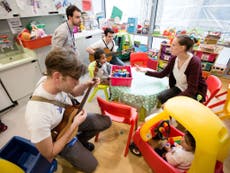
Join our commenting forum
Join thought-provoking conversations, follow other Independent readers and see their replies